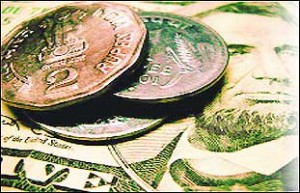Taxes are one of the most important and a major source of revenue for the government to facilitate developments, covering debts etc an economy. Oliver Wendell Holmes once said ‘ I like to pay taxes’ with them ” I buy civilisation”. Many people recognise that taxes are paid only for the Public Services but few enjoy paying taxes; for them its like contributing a small fraction of their income towards the development of their family.
Usually high income tax discourages people to work and encourages them in activities to avoid them. So to avoid this a basic principle of good tax has been followed i.e to charge a low rate over a broad base. Today in many rich developed countries this base is narrowing. Taxes are increasingly paid by a small group of affluent people.
In Britain, where employment has risen by 1.3m in the past five years the number of tax payers has decreased by 2.2m . In Britain most highly paid 1% of the workers are paying around 28% of all income tax, this share was 11% in1979. Talking of the corporate sector in Britain only 830 firms pay almost half of the corporate tax.
Where in America 40% of the households pay no income tax and the most highly paid affluent group of workers pay 46% of all income tax, which was 18% in 1979. Also five American industries account for 81% of the country’s corporate tax revenue.
Another developed country like Australia faces the same problem of narrowing tax base which could lead to Volatility. Australia’s tax discussion paper shows that 2% of the taxpayers pays 26% of personal income tax and most corporate income tax is paid by ”realtively small” group of big companies.
All we talked about were the developed nations. But if we talk about a developing nation like India, the situation can be very worse and indeed it is. Narrowing of tax base is the consequence of widening inequality. In India there are currently 3.5 crore tax payers only even though 10 Crore individuals and business entities are registered.
In case of individulas, major chunk of revenue is collected through Tax deducted at Sources (TDS) , while in the corporate sector, mainly the bigger firms contribute. Also another consequence of such narrow base is that there is an excessive pressure on honest tax payers. The IRS department view that adequate resources are not being allocated to expand the Income Tax department , also they require more manpower as well as better infrastructure.
These failures need to be fixed around the world. A narrow tax base is economically and politically riskly. Government across the rich countries should aggresively prune deductions. In developing country like India, more manpower and better infrastructure is required to broaden up the tax base. As with trade a multilateral trade approach to tax treaties is far better than bilateral trade. And in this way more countries can benefit and have a better chance of raising the taxes that help build a better civilisation.





16 Comments. Leave new
You explained it really well!
Good work
Very well explained.
Good efforts.
Highly informative
very well researched article …good job done !!
Very nice topic and article!
Great work.. well explained!
Interesting topic and well written.
thankyou 🙂
Nicely explained:)
Unique concept and well explained..!
I hate to give TAX in India. They don’t use it wisely :/
If everybody will think the same and won’t give the Tax then, we India can move into serious Economic Crisis . Also the bit of development you see around Delhi and other cities is only because of some honest tax payers , who seriously care to pay. Its just we all should do our part honestly and leave the rest :).
well done !
well written